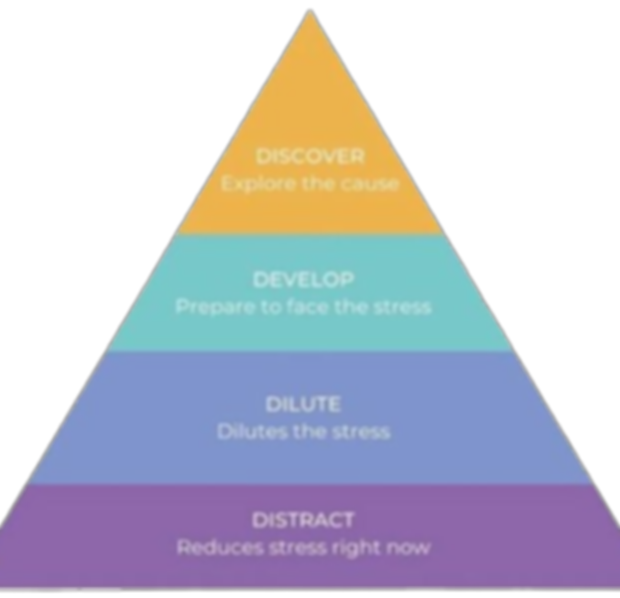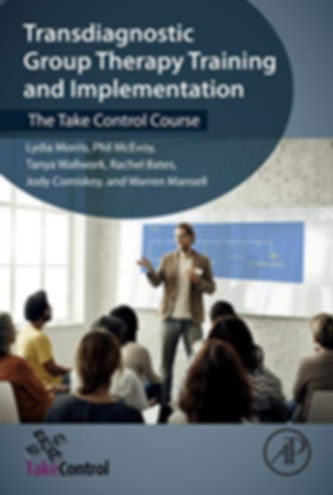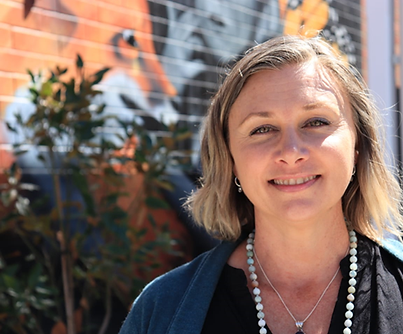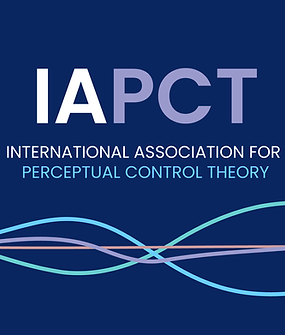

Based at the Curtin University enAble Institute, our research and innovation are led by Experience in three, fundamental ways:
We are led by the lived experience of people who have faced, or are facing, challenges to their mental health.
We are led by our experienced and diverse team of interdisciplinary researchers, collaborators, practitioners and partners.
We are all led by experience. We assume that when people can reach and maintain the experiences they want, they are living a healthy, fulfilling life.
Innovation, Research & Implementation
At LEx, we develop and test innovative and diverse ways to support people to live the life they want by addressing mental health challenges. In particular, we follow the priorities of people with diverse, unmet mental health needs across the spectrum of severity and complexity, and we innovate methods that are co-designed, theory-driven, evidenced-based, and globally scalable. We can produce a fully integrated approach because we follow universal unmet needs and use a universal theory - perceptual control theory - to design and test our innovations.
So how do we work at LEx?
Lived Experience Research
Our work is led by the needs of our stakeholders - and in particular people with lived and living experience of mental health challenges. We aim to help improve outcomes that are meaningful to people in their own lives. We work with co-investigators who have lived experience, and our interventions are co-designed.
Theory, Model and Process Testing
We design a range of studies that test the theory we use – perceptual control theory, and the models that it generates. We also develop ways to measure the process of change, how it is harnessed by our interventions, and related to outcomes. A key strand of this work is to build and test computer models against real-world data
Codesign
We work alongside those with lived experience of mental health challenges to develop, refine and adapt our interventions
Intervention Testing
We test our interventions through a cascade of pilot work, case series, feasibility trials and randomised controlled trials. We interview our users to find out if we meet their needs and how we can make further improvements.
Implementation
We offer training in person and online, and work closely with our service partners to embed our work into everyday life.
Feedback all the way
We are all ‘work in progress’ and this applies as much to each of us as it does to science. We actively seek feedback at every stage of our work.
Meet the Team
LEx is directed by Warren Mansell, and supported by a team of researchers and people with a lived experience of mental health challenges. Prof Mansell also supervises Masters and Honours students, along with recent alumni, whose work supports the team:
-
MYLO: Greg Tsukilis, Alex Cummins, Ash Jenkins & Tony Pham
-
Discovery Talk: Omar Khaliqy, Claire Aldridge & James Ong
-
Dynamic Catalysts: Quinn Harper
-
Consciousness: Louis Trouchet
Our Lived Experience
Codesigners & Co-Investigators
Our work is guided by the ideas and contributions of a variety of stakeholders, many of whom have lived, or living, experience of mental health challenges. Here are some of our most valued contributors.

Our Interventions

MYLO (now Monti)
Our award-winning smartphone-based mental health chatbot that helps the user to explore their problems in more depth and detail to come to a resolution. We have a large interdisciplinary research, development and commercialisation team who are working on the next steps for this unique innovation in an era that AI chatbots are part of everyday life.
See here for our dedicated website, and here for our Curtinnovation Health Sciences Award 2023 video.

4Ds for Dealing with Distress
A 90-minute comprehensive, interactive and experiential workplace stress management webinar. Attendees go at their own pace and select the balance of short and long term approaches to stress that work for their problems. We are currently working on delivering and researching 4Ds in Japanese.
See here for the article describing the science and practice of 4Ds, and here for our online guide published by Psyche.

The Take Control Course
A group intervention for people to grasp the key principles of mental health and wellbeing and apply them in their everyday life. We are currently working on adapting the TCC for Pakistan.
See this article for the latest research on the course.

Dynamic Catalysts
An analysis of the biopsychosocial factors that a person can draw upon to support them at any stage in their mental health recovery. The starting point of this analysis is the detailed accounts of turning points of recovery by those with diverse mental health challenges. The end point is a universal, accessible system that provides a choice of catalysts tailored to the individual at that moment in time. We have a case series nearing completion.
Discovery Talk
A way for a speaker to talk to a listener about a current problem that helps them to explore it in more depth and detail to come to a resolution. Anyone can begin to learn Discovery Talk and apply it in their everyday life. We have a case series with its write-up nearing completion.


Current Research
We are working on a number of research projects that underpin the science of our interventions

Consciousness
Our conscious mind is the arena where we make new meanings of our experience and learn new perceptions of ourselves and the world. We research a model of consciousness based on perceptual control theory, bringing together work on fringe consciousness, information integration and instinctive curiosity. See here for our latest published research.
_JPG.jpg)
Virtual Reality
Virtual Reality has been around for many decades, but only now are its unique properties being tapped for research and intervention. We are exploring the use of VR to generate 'unreal' environments that help clarify concepts such as free will and presence, and that allow the user to control features of their environment that would be impossible in real life, as a stepping stone to facing fears and phobias. See here for our latest published research.

Expressivity & Recovery
We are researching the benefits of the expression of one's experiences, in all its many forms, including journaling, free writing, expressive writing, autobiographies, and the visual arts. How fundamental is expression to recovery from a mental health challenge?
Latest Publications
A Rule-Based Conversational Agent for Mental Health and Well-Being in Young People: Formative Case Series During the Rise of Generative AI
One system, two paths: Unifying autonomic and behavioural thermoregulation via perceptual control
Suicide prevention psychosocial interventions for youth in low- and middle-income countries: systematic review
How can virtual reality help to understand consciousness? A thematic analysis of students’ experiences in a novel virtual environment
The prediction illusion: perceptual control mechanisms that fool the observer
The impact of audience dynamics on public speaking anxiety in virtual scenarios: An online survey.
Earlier
Publications
An Artificial Therapist (Manage Your Life Online) to Support the Mental Health of Youth: Co-Design and Case Series
An Integrative Control Theory Perspective on Consciousness
Advanced online publication at Psychological Review. Author accepted manuscript available here.
A brief transdiagnostic group (the take control course) compared to individual low-intensity CBT for depression and anxiety: a randomized non-inferiority trial
Our Network
LEx is closely linked with a number of international networks. LEx takes a universal approach to mental health shared with the 'transdiagnostic' approach, and LEx is founded on the principles of perceptual control theory, a scientific framework supported by the IAPCT. Professor Mansell is collaborates with colleagues in the UK, using PCT to support Empowered Conversations, a communication training program for carers of people living with dementia, and a variety of innovations in mental health service design in collaboration with Professor Sara Tai, Dr Rob Griffiths, and Dr Vyv Huddy.
For a complete list of our collaborators and co-investigators, please click here.
Our Co-Investigators
We are working with a large multidisciplinary team of co-investigators on our research, and selection of our team have provided their details here.
Sarah Egan, Associate Professor, Curtin University
Transdiagnostic approaches to co-designed interventions to improve outcomes for young people across anxiety, depression and eating disorders.
Prof Egan collaborates on transdiagnostic approaches to improving mental health with the research group, for example, as a co-investigator of MYLO.
Melanie Johnston-Hollitt, Professor, Curtin University
Data Science, Machine Learning, and research software for digital health.
Professor Johnston-Hollitt is director of the Curtin Institute for Data Science and collaborates on the data science and research software development for digital interventions such as MYLO.
Wai Chen, Professor of Youth Mental Health and Developmental Neuropsychiatry, Fiona Stanley Hospital;
Curtin University
Neurodevelopmental disorders, emotion dysregulation, language and development, alexithymia, transdiagnostic and dimensional nosology research, social research, self-harm, gaming disorder, psychopharmacology.
Professor Chen collaborates on digital intervention, as a co-investigator of MYLO.
Daniel Rudaizky, Lecturer, Curtin University
Cognitive approaches to understanding emotions and behaviour.
Collaborating on understanding the mechanisms that contribute to effective fear reduction in specific phobias, and exploring these within a virtual reality environment.
Tauseef Gulrez, Adjunct Associate Professor, Curtin University
Dr Gulrez collaborates on development, assessment and comparison of PCT-based models with classical Machine Learning Models, in order to develop a novel Learning-Less AI paradigm. He also collaborates on developing computer mediated consciousness assessment experiments.
David Preece, Lecturer, Curtin University
Clinical psychologist. The understanding, assessment, and treatment of emotional disorders. Emotion regulation & alexithymia. Transdiagnostic approaches. Statistics.
Collaborating on surveys to establish core transdiagnostic processes.












_edited.jpg)












